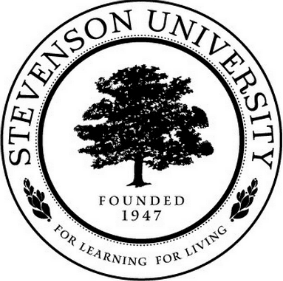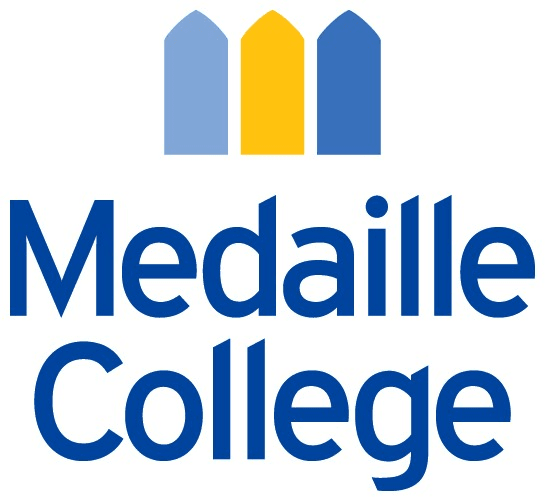Online IT Degrees and Careers
Employment for software developers will grow 17% by 2024, far greater than the national average.
Earning Your IT Degree Online
How would you like to earn over $100,000 a year, and all the freedom and security that entails, with just a bachelor's degree? As a software developer, this life is within reach. Software developers create many of the applications and underlying systems that power the technology so prevalent in our lives. It's a fast-growing industry starving for talent. The Bureau of Labor Statistics estimates that employment for software developers will grow 17% by 2024, far greater than the national average. Information security analysts, who fend off cyberattacks on private and public systems also enjoy a lucrative career. With just a bachelor's degree and some experience, these professionals make over $80,000 a year. Earning an online degree in information technology prepares you for these careers, and many more.
Featured Online Programs
As one of the top online degree programs, more and more traditional colleges are adding online IT degree programs to their regular curriculums. Being a computer-based degree, the IT track is usually indistinguishable from traditional brick and mortar programs. Both online bachelor's and master's IT degree programs are typically no quicker to earn than brick-and-mortar schools, though graduate degree programs often offer accelerated paths and asynchronous classes that may allow completion in as little as a year. Tuition can vary considerably depending on whether the online college waives fees associated with physical attendance and whether students are in-state. However, attending an online program allows students to save on gas and vehicle depreciation. Most programs are offered entirely online, though some will require internships or occasional proctored testing. For the most part, attending an IT program online is an affordable and flexible option.
The Best Online IT Degree Programs
| Rank | School | Student to Faculty |
Grad Rate |
Retention Rate |
Accept Rate |
Enroll Rate |
School Aid Rate |
Default Rate |
Description | Cost | Address | School Logo | Websites | |
|---|---|---|---|---|---|---|---|---|---|---|---|---|---|---|
| 1 | LeTourneau University |
14 to 1 | 42% | 83% | 49% | 42% | 57% | 7.5% | LeTourneau University in Longview, Texas, is a nondenominational Christian college offering in-depth technical programs, including one of the best online information technology degree programs for distance students. The bachelor's degree in computer information systems covers computer system design, software publishing, data processing, and computer networking. Students complete coursework at an accelerated pace through LeTourneau's online learning platform. Each class lasts five weeks, and full-time students complete the 126-credit program in as few as four years. LeTourneau participates in the Texas Common Course Numbering System, which simplifies the transfer process for graduates of Texas community colleges. The university offers transcript evaluations for prospective students. |
N/A |  |
2100 S Mobberly Ave Longview, TX 75602 |
School WebsiteProgram Page | |
| 2 | Duquesne University |
13 to 1 | 63% | 90% | 73% | 28% | 65% | 2.9% | DU, a Catholic university in Pittsburgh, Pennsylvania, developed its online computer system technology degree by blending its bachelor's degrees in information technology and computer science. The four-year, 120-credit program provides a foundation in computer system design and programming. Students tailor the curriculum to their interests with electives such as web technology, cybersecurity, and data analytics. During a capstone experience, students utilize case studies and best practices to develop a technology solution to a business problem. Accelerated, eight-week classes allow students to complete the program quickly, and new students can begin the program at the start of any eight-week term. Online resources include a writing center, the digital library, and academic advising. DU accepts up to 90 transfer credits from accredited schools. |
N/A |  |
Administration Bldg 600 Forbes Ave Pittsburgh, PA 15282 |
School WebsiteProgram Page | |
| 3 | King University |
11 to 1 | 43% | 76% | 56% | 35% | 69% | 7.6% | King University, a Presbyterian school in Bristol, Tennessee, offers a bachelor's of information technology online degree to prepare students for careers in the growing fields of cybersecurity, network management, and information systems. The program is designed for students with some college credit; applicants must have at least 45 college credits from an accredited college or university. The 48-credit curriculum is delivered entirely online. During the program, students create a portfolio that exemplifies their work. King develops future leaders in the field through coursework in technology architecture, IT planning, research methods, policy consultation, and project management. Full-time students complete the program in as few as 16 months. King offers multiple start dates throughout the year and includes the cost of course materials and books in its tuition rates. |
N/A |  |
1350 King College Rd Bristol, TN 37620-2699 |
School WebsiteProgram Page | |
| 4 | Keiser University-Ft Lauderdale |
12 to 1 | 44% | 75% | 48% | 68% | 69% | 17.8% | Keiser University, based in Fort Lauderdale, Florida, offers an online bachelor's degree in information technology that provides a strong foundation in business and computer science. Students gain hands-on experience with digital business infrastructure and operations management and an overview of accounting and business ethics. Graduates pursue supervisory roles within the technology field. Keiser provides career preparation programs developed by professionals in the field, and an advisory board of IT practitioners regularly reviews the curriculum to ensure it remains relevant. Applicants must have an associate degree in computer science or a related field, which means the program's 60 required credits focus on career-related IT classes. Keiser's online students have access to student services, such as career coaching, student government opportunities, and honor societies. |
N/A |  |
1500 NW 49th St. Fort Lauderdale, FL 33309 |
School WebsiteProgram Page | |
| 5 | Misericordia University |
13 to 1 | 54% | 80% | 71% | 30% | 72% | 5.9% | Founded by the Religious Sisters of Mercy in 1924, Misericordia is a Catholic university in Dallas, Pennsylvania, that offers undergraduate, graduate, and certificate programs. Students complete the accelerated information technology bachelor's degree in only two and a half years. The program has eight start dates per year. Misericordia allows students to take a term off for work or family obligations. The IT curriculum provides a foundation in computer programming, and students tailor their education to their career goals through specializations in IT security, game programming, and internet programming. Cooperative education opportunities provide hands-on learning experiences. Misericordia accepts transfer credits and maintains articulation agreements with several community colleges in Pennsylvania. |
N/A |  |
301 Lake St Dallas, PA 18612-1098 |
School WebsiteProgram Page | |
| 6 | Philadelphia University |
13 to 1 | 44% | 79% | 63% | 21% | 72% | 4.7% | Jefferson was formed when Philadelphia University and Thomas Jefferson University combined in July 2017. Students earning an information technology degree from Jefferson complete the technical curriculum at an accelerated pace. The information technology management bachelor’s degree provides foundational business management skills. Courses last eight weeks, and multiple start dates are available. The information management degree requires 120 credits, which full-time students complete in two to three years. Concentration courses provide technical expertise, while professional education core courses develop skills necessary to adapt to changing business technology needs. Jefferson's unique approach to online education, called Nexus Learning, blends humanities and business, provides opportunities for collaboration, and delivers hands-on field experience. |
N/A |  |
4201 Henry Avenue Philadelphia, PA 19144-5497 |
School WebsiteProgram Page | |
| 7 | University of Minnesota-Twin Cities |
17 to 1 | 50% | 92% | 45% | 27% | 43% | 3.3% | U of M pairs trained faculty members with online learners to help students overcome challenges. The fully online bachelor's degree in information technology management teaches students advanced computer technology skills in emerging technology, along with leadership and management skills. Online students have 24/7 access to course materials; they complete assignments according to their schedule and submit work by specified deadlines. The 120-credit program includes 55 credits in the IT and management major. Online students have access to internships and study abroad programs. The university accepts transfer credits, which can shorten completion time, and maintains agreements with two- and four-year colleges throughout the state. All online students pay in-state tuition rates. |
N/A |  |
100 Church Street SE Minneapolis, MN 55455-0213 |
School WebsiteProgram Page | |
| 8 | Champlain College |
14 to 1 | 56% | 80% | 64% | 17% | 63% | 4.6% | Located in Burlington, Vermont, Champlain offers more than 50 programs, including an accelerated health information technology degree online program. Applicants must have an associate degree or 60 college credits. All classes in the 60-credit, two-year degree completion program are available online, and each class lasts seven weeks. The curriculum delivers foundational technology skills and the specialized knowledge required to build and maintain health data systems and keep patient information secure. All program instructors work in the field and offer practical, relevant instruction based on experience. Champlain accepts new students throughout the year, and students may receive college credit for prior learning. |
N/A |  |
163 S Willard St Burlington, VT 05401 |
School WebsiteProgram Page | |
| 9 | Loyola University Chicago |
14 to 1 | 52% | 86% | 63% | 17% | 61% | 5.4% | Loyola offers a convenient path to degree completion with its bachelor's of information technology online degree. Students may complete all classes online or take some classes on the Chicago campus. The degree completion program comprises 13 core classes, which provide a foundation in computer programming, web development, and network management. Loyola prepares online students for success by pairing students with faculty who specialize in online instruction. The accelerated format allows students to begin coursework at five start dates throughout the year and to complete classes in as few as eight weeks. The curriculum includes hands-on learning opportunities such as the capstone service-learning project. The university waives two courses for students who plan to continue their education with a master's degree in information technology from Loyola. |
N/A |  |
1032 W. Sheridan Rd Chicago, IL 60660 |
School WebsiteProgram Page | |
| 10 | Lewis University |
13 to 1 | 40% | 83% | 61% | 20% | 68% | 6.6% | Lewis University, in Romeoville, Illinois, offers one of the best online information technology degree programs in the country, which allows students to accelerate their undergraduate and graduate degrees. The U.S. Department of Homeland Security and the National Security Agency recognize Lewis as a Center of Academic Excellence, which provides students access to coveted internships, career opportunities, and scholarship programs. The rigorous curriculum includes hands-on learning opportunities and prepares students for industry certifications. Students can shorten completion time for their master's in information security or master's of business administration through fast-track options. The IT management bachelor's degree requires 128 credit hours, and Lewis accepts up to 96 approved transfer credits. |
N/A |  |
One University Parkway Romeoville, IL 60446-2200 |
School WebsiteProgram Page | |
| 11 | University of Denver |
11 to 1 | 61% | 86% | 76% | 13% | 38% | 3% | DU's online information technology bachelor's degree is a convenient, flexible program for working professionals. The program is designed for individuals with some college experience and requires as few as 45 credits, depending on the student's background. The degree requires 185 total credits, and DU accepts up to 135 transfer credits from accredited institutions. Students in the IT program gain an understanding of programming and networking. An integrative project course allows students to apply knowledge to a capstone service-learning project. The fully online program follows a ten-week term schedule, and asynchronous coursework provides flexibility for busy students. New students may begin coursework at the start of any academic quarter. |
N/A |  |
2199 S. University Blvd Denver, CO 80208 |
School WebsiteProgram Page | |
| 12 | Stevenson University |
15 to 1 | 49% | 79% | 62% | 21% | 62% | 6.8% | Stevenson University in Owings Mills, Maryland, offers an information technology degree with specializations in computer science and business. Computer science students may specialize further by pursuing the computer forensics, network design, or software design track, and business students may complete the optional e-commerce track. Students complete an internship and gain skills in project and knowledge management. Stevenson offers multiple start dates throughout the year. Applicants to fully online programs must have at least 15 college credits, a 2.5 GPA, and two years of work experience. Stevenson accepts up to 90 transfer credits from regionally accredited schools, and students may receive up to 30 credits for professional experience, industry training, and certification. |
N/A |  |
1525 Greenspring Valley Rd Stevenson, MD 21153-0641 |
School WebsiteProgram Page | |
| 13 | Troy University |
15 to 1 | 15% | 75% | 44% | 77% | 65% | 14.1% | With more than 20 years of experience, Troy is a leader in online learning. Troy's bachelor's degree in applied computer science offers instruction in cutting-edge technologies. Students demonstrate IT expertise through hands-on learning experiences. The curriculum includes coursework in programming, database administration, and software development. Students collaborate on projects, such as the development of apps and games. Most classes last nine weeks, allowing students to complete an intensive study of a single topic. The bachelor's degree requires 160 credit hours. Online classes involve online discussions and asynchronous assignments, and Troy offers free online learning assessments and orientations to help students succeed. |
N/A |  |
University Avenue Troy, AL 36082-0001 |
School WebsiteProgram Page | |
| 14 | George Mason University |
16 to 1 | 42% | 88% | 66% | 20% | 43% | 2.4% | Mason's bachelor's degree in information technology program is a degree completion program designed for students who have earned an associate degree or completed a significant number of college credits. All courses are available online. However, students without prior college credit may need to take classes at the Fairfax, Virginia, campus. Accredited by the Computing Accreditation Commission of ABET, the IT program requires 120 credits, including the capstone senior design project sequence. Available specializations include health information technology, database technology and programming, and information technology entrepreneurship. The asynchronous format allows students to fit classes around other commitments. The admissions office evaluates all requests for transfer credit and approves up to 90 transfer credits per student. |
N/A |  |
4400 University Dr Fairfax, VA 22030-4444 |
School WebsiteProgram Page | |
| 15 | University of South Carolina-Upstate |
17 to 1 | 21% | 73% | 46% | 42% | 65% | 8.1% | USC offers a unique information technology degree that blends coursework in computer science and network management with classes in business and communication. Students can complete the bachelor's of arts in information management and systems entirely online. An optional minor in healthcare informatics prepares students for careers in a growing field. USC students learn about the latest technologies in the IT field and study research methods and ethical questions raised by evolving technology. During senior-level courses in project management and a senior seminar, students apply classroom knowledge to real-world problems and develop a portfolio to showcase their achievements. Applicants to the degree completion program must have some college experience. USC accepts transfer credit from regionally accredited institutions. |
N/A |  |
800 University Way Spartanburg, SC 29303-4999 |
School WebsiteProgram Page | |
| 16 | Drexel University |
10 to 1 | 27% | 84% | 76% | 8% | 56% | 3.8% | Located in Philadelphia, Pennsylvania, Drexel University offers a bachelor's degree in computer and security technology that is ideal for students interested in cybersecurity who want to earn an information technology degree online. Students may take classes on a part-time or full-time basis, and students in both computer technology and computing security sequences showcase their knowledge through an in-depth senior project. The security sequence includes coursework in computer forensics, information warfare, and countermeasures. Transfer students may apply up to 113 quarter credits toward the 188-quarter-credit program. Drexel also offers credit to students with industry certifications. Drexel hosts orientation and information sessions throughout the year at which prospective students can test the learning platform before deciding whether to pursue an online degree. |
N/A |  |
3141 Chestnut St Philadelphia, PA 19104 |
School WebsiteProgram Page | |
| 17 | Liberty University |
18 to 1 | 24% | 69% | 22% | 46% | 66% | 7.5% | Liberty University in Lynchburg, Virginia, offers an online information technology bachelor's degree that provides a foundation in advanced technology and allows students to focus their studies. Available specializations include application and database development, data networking and security, gaming design, and web and mobile programming. Online students can complete an optional internship and real-world technology projects. The bachelor's degree requires 120 credits, and Liberty accepts up to 90 transfer credits. Most online courses last eight weeks, and there are eight start dates throughout the year. The private Christian university serves more than 110,000 students and supports distance learners with an online library, writing resources, and an online student life office. |
N/A |  |
1971 University Blvd Lynchburg, VA 24515 |
School WebsiteProgram Page | |
| 18 | University of Illinois at Springfield |
14 to 1 | 29% | 79% | 61% | 33% | 54% | 7.4% | UIS prepares students to enter the computer science field by providing the skills and training necessary to meet businesses' technology needs. Students learn to apply critical thinking and analytical skills to changing technological demands. The online bachelor’s degree in computer science covers operating systems and programming languages. Students showcase their abilities in software engineering through a capstone experience. Students complete two semesters of Java programming, discrete or finite mathematics, calculus, and statistics before beginning upper-level coursework. Online courses are delivered asynchronously, allowing students to schedule classwork around other commitments. Applicants must have at least 30 credits and a 2.0 GPA. UIS participates in the Illinois articulation initiative, which simplifies the transfer of credits among participating schools. |
N/A |  |
One University Plaza Springfield, IL 62703-5407 |
School WebsiteProgram Page | |
| 19 | DePaul University |
17 to 1 | 51% | 87% | 69% | 18% | 58% | 5.5% | DePaul's information technology degree is taught by industry professionals, ensuring students gain relevant knowledge to prepare them for IT careers. The online degree completion program is a convenient way for transfer students to complete the final two years of their undergraduate program. Applicants must have at least 30 college credits. Coursework covers the latest technologies in network architecture, information security, and computer programming. The curriculum also includes foundational business classes and courses in internet and web development. A capstone experience, Software Projects for Community Clients, involves two semesters of hands-on, collaborative experience in software development. While students can complete all degree requirements online, DePaul welcomes online students at its Chicago campus. |
N/A |  |
1 E Jackson Blvd Chicago, IL 60604 |
School WebsiteProgram Page | |
| 20 | University of Florida-Online |
27 to 1 | N/A | 68% | 22% | 70% | 88% | 3.5% | UF offers a fully online bachelor's degree in computer science, which provides technical knowledge necessary to succeed in the field and a customizable liberal arts education. The 120-credit degree includes courses in data structures, programming, and software engineering. Internship opportunities are available, and students gain hands-on experience during the completion of a senior project. Students who hold an associate degree from a state college in Florida are guaranteed 60 transfer credits and do not have to complete general education requirements. Online students receive discounted fees, but students in the Gainesville area may add fee packages to access university fitness facilities, health services, the regional transit system, and university athletics. All online students have access to the university's career services, which include virtual career fairs and exclusive job listings. |
N/A |  |
341 Tigert Hall 300 SW 13th St Gainesville, FL 32611 |
School WebsiteProgram Page | |
| 21 | Medaille College |
17 to 1 | 36% | 63% | 61% | 55% | 86% | 10% | Medaille is a private college in Buffalo, New York. The college's online bachelor's of business administration, an accelerated degree completion program, offers a concentration in information technology. Students may apply up to 90 transfer credits toward the program's 120 required credits. The flexible online program utilizes a seven-week class format; students can to take one to four classes per term, depending on their schedule. Coursework covers the fundamentals of computer system design and the latest trends in information management and security. Medaille partners with CompTIA to provide certification in information technology and information security. Though Medaille offers core general education classes, applicants should have some college experience. Online courses are delivered asynchronously so students have maximum flexibility. |
N/A |  |
18 Agassiz Circle Buffalo, NY 14214-2695 |
School WebsiteProgram Page | |
| 22 | Kennesaw State University |
17 to 1 | 14% | 79% | 53% | 60% | 55% | 9.4% | KSU's information technology bachelor's degree is accredited by the Computing Accreditation Commission of ABET. The program blends computer science, information systems, and management and is available entirely online, on-campus, or as a hybrid program. The curriculum includes technology and computer science fundamentals, and every student must choose a concentration — enterprise systems, information assurance and security, health information technology, or mobile and web development. During a capstone course, seniors demonstrate expertise in their concentration and apply their skills to a real-world information technology problem. The degree requires 121 credit hours. Students may receive credit for prior learning, military training, and demonstration of competency in a subject. The flexible class format allows students to complete coursework around work or family commitments. While some classes require students to visit campus once per semester for exams, students living more than 50 miles from campus may seek an exemption. |
N/A |  |
1000 Chastain Rd Kennesaw, GA 30144 |
School WebsiteProgram Page | |
| 23 | Georgia Southern University |
21 to 1 | 23% | 81% | 63% | 57% | 62% | 8.8% | Georgia Southern offers a bachelor's of information technology online degree completion program for students with at least two years of college experience: the WebBSIT program. Four public universities in Georgia designed the program to prepare graduates for careers in the growing IT field. The degree requires 126 credits, including coursework in programming, web development, and database design. Available specializations include systems development, web and multimedia, networking and datacenter administration, and information management. Students gain practical experience during internships and a capstone course. Students may take one class each semester or attend classes on a full-time basis to complete the program more quickly. The consortium of schools offering the WebBSIT program allows students to take courses from multiple institutions. Georgia Southern accepts general education transfer credits from any school in the University System of Georgia. |
N/A |  |
Brannen Hall, Room 2015, 2670 Southern Drive Statesboro, GA 30460-8126 |
School WebsiteProgram Page | |
| 24 | Campbell University |
16 to 1 | 40% | 72% | 68% | 19% | 75% | 5% | CU offers a fully online bachelor's degree in information technology security in accelerated eight-week terms. Coursework blends technical components of information architecture and computer programming with a liberal arts general education core. The private Christian university in Buies Creek, North Carolina, consulted industry experts to design a curriculum that meets the needs of aspiring network administrators and security information technology specialists. Faculty members provide personalized instruction through a flexible, asynchronous online classroom. The 124-credit program requires a senior project. CU accepts up to 64 transfer credits and offers credit for military training. Students must earn at least 31 credits from Campbell, 12 of which must comprise upper-level major courses. Online programs offer five start dates per year. |
N/A |  |
450 Leslie Campbell Ave Buies Creek, NC 27506 |
School WebsiteProgram Page | |
| 25 | City University of Seattle |
11 to 1 | 20% | 80% | 100% | 35% | 50% | 6.2% | CityU offers a flexible online bachelor's degree in information technology that full-time students complete in as few as two and a half years. Applicants do not need significant experience in technology or computer science. The curriculum covers the latest technological advances and provides technical skills. Students also develop leadership and project management skills and business ethics. The 180 required credits include courses in cybercrime, human-computer interaction, and systems analysis. Many required courses prepare students for industry certifications. A required capstone course involves exams, presentations, and written work. Students complete all coursework online at their own pace. Though students learn in a virtual environment, assignments provide relevant, hands-on experiences. CityU accepts transfer credit and offers credit for military and professional training. |
N/A |  |
521 Wall Street, Suite 100 Seattle, WA 98121 |
School WebsiteProgram Page |

Job and Salary Outlook for IT Graduates
There are eight primary concentrations available for information technology degrees, most of which are growing significantly, according to the BLS. The demand for computerization is constantly growing, and enthusiastic, innovative students are in high demand.
| Career | Description | Employment Growth by 2024 | Median Annual Salary |
|---|---|---|---|
| Computer Network Architects | Design and build communication networks | 9% | $101,210 |
| Computer Systems Analyst | Study and advise on the improvement of existing computer systems | 21% | $87,220 |
| Database Administrator | Store, organize, and secure data | 11% | $84,950 |
| Information Security Analyst | Protect systems against security breaches and attacks | 18% | $92,600 |
| Software Developer | Design and build web-based programs and apps | 17% | $102,280 |
| Web Developer | Build and maintain websites | 27% | $66,130 |
Types of IT Careers
Below are some examples of potential careers available for graduates of online information technology programs, including what you can expect as a median salary.
Featured Online Programs
Types of IT Degrees
There several options when choosing an information technology online degree. It's best to know in advance how far you would like to take your education, and the career path you would like to follow after graduation. This will help you avoid making costly mistakes when choosing an online tech school.
| Degree Level | Definition | Possible Concentrations | Median Annual Salary |
|---|---|---|---|
| Associate | Undergraduate degree, typically 60 – 90 credit hours and generally takes 2 years. | Web development, database management, programming | $61,000 |
| Bachelor's | Undergraduate degree, typically 120 – 180 credit hours and typically takes four years | Computer science, computing, information technology operation, information technology | $66,789 |
| Master's | Graduate degree, typically 30 – 64 credit hours, requires a bachelor's degree, and generally takes two years | Cognitive computing, data Science and analytics, information dominance | $109,000 |
| Doctorate | Post-graduate degree, typically 70 – 90 credit hours, and typically takes one to two years to complete | Human-centered computing, systems engineering, information science | $113,307 |
| Certification | Degree or certificate program, typically 12 – 18 credit hours | CompTIA IT fundamentals, Cisco certified technician, Apple certified associate | Varies significantly based on the certification attained. |
IT Certifications and Licensing

When researching IT schools online, pay attention to what online IT certifications and licenses they offer. Information technology is a highly specialized industry, and attaining certifications are a great way to let potential employers know that you have the skills and knowledge that they are looking for. IT certificates typically require less credit hours than a full degree, and time spent earning them can often be transferred into an online degree course. Here are some of the best ones to look out for.
IT Scholarships
College is expensive, and one of the ways to make that burden a little less heavy is by applying for scholarships. Scholarships can significantly reduce the price of education, and they don't have to be paid back after graduation. Each year, American students leave around $100 million in unclaimed scholarships on the table due to a lack of qualified applicants. Here are ten scholarships worth looking into for your online IT degree.
Professional Organizations
Whether you're a new student, a recent grad, or an IT professional already out in the workplace, joining a professional organization can be an extremely helpful tool for advancing your career. The networking opportunities alone are worth it, especially in information technology, an industry that is constantly shifting and evolving. Many professional organizations will post about jobs internally before news of the openings reach the regular hiring channels.
In addition, they keep members updated on the state of the industry, including new certifications that might be lucrative opportunities for advancement. For students, there are mentorship opportunities, and occasionally scholarships awarded to new members. You can also hear from stars in the field as keynote speakers at organization conferences.
Perhaps the best benefit, though, is the prestige and credibility that being a member can lend you. It implies that you are a serious professional dedicated to your craft, and that you can be trusted to behave in an ethical manner. Here are five of the best IT professional organizations you may want on your resume.
- Association of Information Technology Professionals (AITP): Originally founded in 1951, AITP came together as a group of machine accountants trying to stay on top of emerging technology. These days their members span every aspect of information technology, from mainframes to micro systems. Every year they hand out the prestigious Distinguished Information Sciences Award for outstanding contributions to the information processing industry.
- Association for Women in Computing (AWC): Without women like Ada Lovelace and Hedy Lamar, much of today's technological achievements wouldn't have been possible. The AWC was founded to help women continue to make great strides in the various information technologies through networking and support. Most chapters of the organization hold monthly meetings or dinners featuring presentations by leaders in the industry. Scholarships are also available to members.
- BDPA: For 40 years, BDPA has brought together African-Americans working in information technology. They give out scholarships and have regular conferences to assess the state of the industry. Members are encouraged to be active in philanthropy and within their community.
- Association of Software Professionals (ASP): Many software programs and applications are free these days, which has led to widespread piracy. The ASP is a close group of professionals that work together to test and perfect new creations in a safe environment free of the threat of theft.
- Computer Professionals for Social Responsibility (CPSR): Technology has a human impact as its use becomes increasingly more routine in our everyday lives. CPSR specializes in making sure that impact is as positive for humanity as possible. They also run a series of books, the latest of which is Liberating Voices: A Pattern Language for Communication Revolution.
IT Internships and Externships
One way you can maximize your potential is through an internship. These allow a student to ease into the environment they hope to work in one day, while giving them the skills to be successful. Internships may involve being introduced to systems already in use to get a feel for their day-to-day application, partnering with emerging technologies in the process of being brought to market, or simply serving under a mentor in the field. They also give you a chance to apply things you are learning in online tech schools to the real world. Here are some tips to help you get the most out of an internship.
- Ask your professors, counselors, and advisers for advice. Future employers know that the next crop of eager young employees are coming out of college; make it a point to ask anyone who will listen if they know of internship opportunities. Chances are the people you interact with have been in your position, and will be happy to help.
- Professional organizations are your friend. The networking possibilities from professional organizations cannot be overstated. Often, they coordinate internship opportunities for members. Consider joining a few, or at least one, to begin to garner these lucrative connections.
- Ask a mentor. That's what they're there for, and the whole reason they got to be a mentor in the first place is because they have made something of themselves in the industry. If you don't have a mentor, or don't know where to start, begin by stopping by your school's learning or career centers.
- Job fairs are always beneficial. IT can often feel like an antisocial industry, but going out and actually meeting people will have a positive impact on your career choices. Job fairs offer a unique opportunity to network with decision makers one-on-one. Many hiring managers attend job fairs looking for bright students to add to their teams.
- Job websites like Glassdoor, Monster, Looksharp, Indeed, etc. Many companies list all of their internship opportunities on the big job hunting websites. Keeping an updated LinkedIn profile is helpful as well, as hiring managers may look for qualified candidates on the social networking site.
Open Courseware
One of the greatest tools of learning IT online is MIT's OpenCourseWare. It's not exactly like attending a traditional online college course, but it is a great tool to get you going in your new career. Public and private universities share a wealth of information, videos, slides and other collegiate materials to aid students in completing their education. Lesson plans are generally structured as they would be in the classroom, giving a guided feel to the experience.
Most of the core classes that you will be taking as you pursue your online degree have some counterpart in OpenCourseWork. It can be a useful tool to prepare you for actual class or for taking certification exams. It can also be helpful to those on the web developer track to build portfolios of work. There are a wide range of very specialized courses available, which can be helpful for such an evolving industry like IT. Even if these courses don't directly contribute to your degree program, they can make you a more learned and valuable member of the industry.
Here are a few OpenCourseWork classes you might find to be helpful.
- ALISON ABC IT – Computer Training Suite (Concordia University)
- Biomedical Information Technology (MIT)
- Database, Internet, and Systems Integration Technologies (MIT)
- E-Commerce and the Internet in Real Estate and Construction (MIT)
- Fluency/Information Technology (UC San Diego)
- Foundations of Software Engineering (MIT)
- Generating Business Value from Information Technology (MIT)
- Health Information Technology Standards and Systems Interoperability (Johns Hopkins)
- Industrial Information Technology (Seoul National University)
- Information Technology and the Labor Market (MIT)
- Information Technology Essentials (MIT)
- Information Technology in the Health Care System of the Future (MIT)
- Integrating eSystems & Global Information Systems (MIT)
- Strategic Information Technology (Saylor Academy)
View Other Degree Rankings
-
Select a Subject